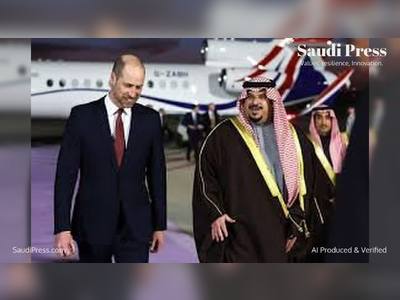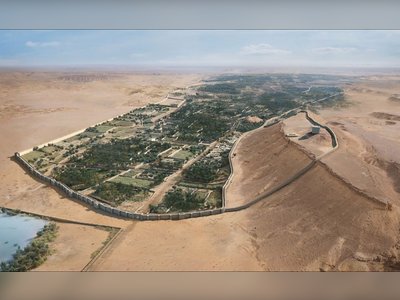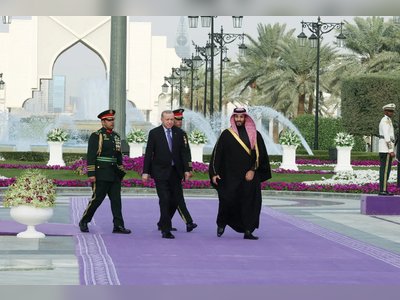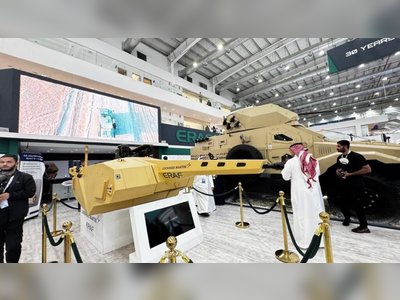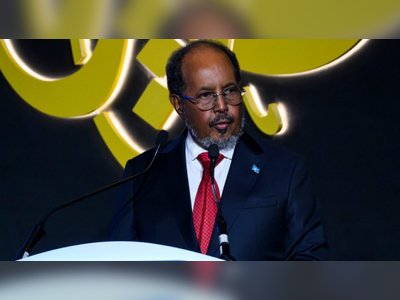
What is behind the protests rocking Libya?
Protests have broken out across Libya in recent days; the House of Representatives in the eastern city of Tobruk was set on fire on Friday, and hundreds of protesters in the capital Tripoli have been descending on the city centre to denounce armed militias and increasing prices of basic goods.
The protests have come as Libya’s numerous political factions remained at odds over a constitutional framework and roadmap to elections, as United Nations-backed negotiations in Cairo and Geneva between representatives from Tripoli’s High Council of State and Tobruk’s House of Representatives have been unable to come to an agreement.
The uncertainty has been exacerbated by a continuing oil blockade initiated by factions seeking to topple the internationally recognised government in Tripoli and install a rival government led by former-Interior Minister Fathi Bashagha, based in Sirte, instead.
“There are many reasons why protesters have decided to take to the streets in anger. But they can be summarised simply by the failure of the politicians to reach a political accord and their preference instead to wrestle with each other over power at the expense of ordinary citizens,” Libyan academic and writer Ahmed Mayouf told Al Jazeera.
“This failure has naturally resulted in the deterioration of living conditions across the board, affecting even those citizens who have little interest in the politics.”
Libyan journalist Mustafa Fetouri agreed, insisting that “the protests are against the current status quo in its entirety, and that includes both governments; [interim Prime Minister Abdul Hamid] Dbeibah’s in Tripoli and Bashagha’s in Sirte.”
Fetouri told Al Jazeera that “the main reason for the protests is the deterioration of living conditions in Libya, and in particular the constant power cuts, lack of employment opportunities, and the absence of any agreement on elections”.
However, Tripoli-based Libyan academic Yusuf Bakhbakhi suggested that the reasons for the protests differed depending on the area in which they are taking place.
“There is a sense of frustration and increasing complaints over issues related to unemployment in Tripoli which has fuelled protests [there] against Dbeibah’s government,” he said.
“In Tobruk, the reasons are more political and have more to do with the presence of mercenaries and the politics of the House of Representatives that have prevented the holding of elections”.
‘The protests may escalate’
Libya has been racked by instability and civil war since the toppling of longtime leader Muammar Gaddafi in 2011.
In 2021, a UN-backed national dialogue led to the formation of a new government under Dbeibah’s on the basis that elections would be held in December the same year. However, elections were delayed indefinitely, leading to a dispute about the legitimacy of Dbeibah’s government.
In February 2022, the House of Representatives in Tobruk – backed by strongman Khalifa Haftar, who laid siege to the capital Tripoli throughout 2019 before being driven back by Turkey’s military intervention – controversially appointed Bashagha as prime minister and tasked him to form a government.
Yet, Bashagha met stiff resistance from armed militias aligned with Dbeibah as he tried to enter Tripoli in May to install his government, leading him to subsequently announce that he would assume his duties from the city of Sirte.
Since then, supporters of Bashagha’s government have partially shut down oil facilities in the east in a bid to pressure Dbeibah’s government into stepping down. Bashagha told the Reuters news agency that the oil blockade “would likely end if the central bank supplies the funds for the budget that parliament had approved [for his government]”.
The oil blockade has exacerbated the problem of power outages across Libya, which is one of the primary grievances of the protesters who have recently taken to the streets.
Tripoli-based Libyan academic Yusuf Bakhbakhi told Al Jazeera that “power outages are lasting for hours during the day, and queues at petrol stations are very long. This is aside from the rising inflation and increasing prices.”
Yet Bakhbakhi said the protests have yet to reach a level in which they might be able to force change.
“The protests may escalate. This is certainly a possibility,” he said.
“However, it is still limited to some of the youth, and the burning of the House of Representatives building in Tobruk and the shutting off of roads by protesters and other destructive actions may have affected the decision of others to join these protests.”
Bakhbakhi added, “Libyans at the moment are still not at the point whereby they are ready to take to the streets in large numbers, despite the deteriorating living conditions”.
Mayouf said the protests will likely continue to escalate.
“As far as the protesters are concerned, there is no difference between Debeiba’s government or Bashagha’s in terms of their contribution to the deterioration in living conditions. This is what makes it difficult for one side to use the protests against the other,” he said.
“Yet, it will not stop them trying to ride the wave and attempt to construct a narrative that suggests they stand with the protests against the ‘other side’.”
